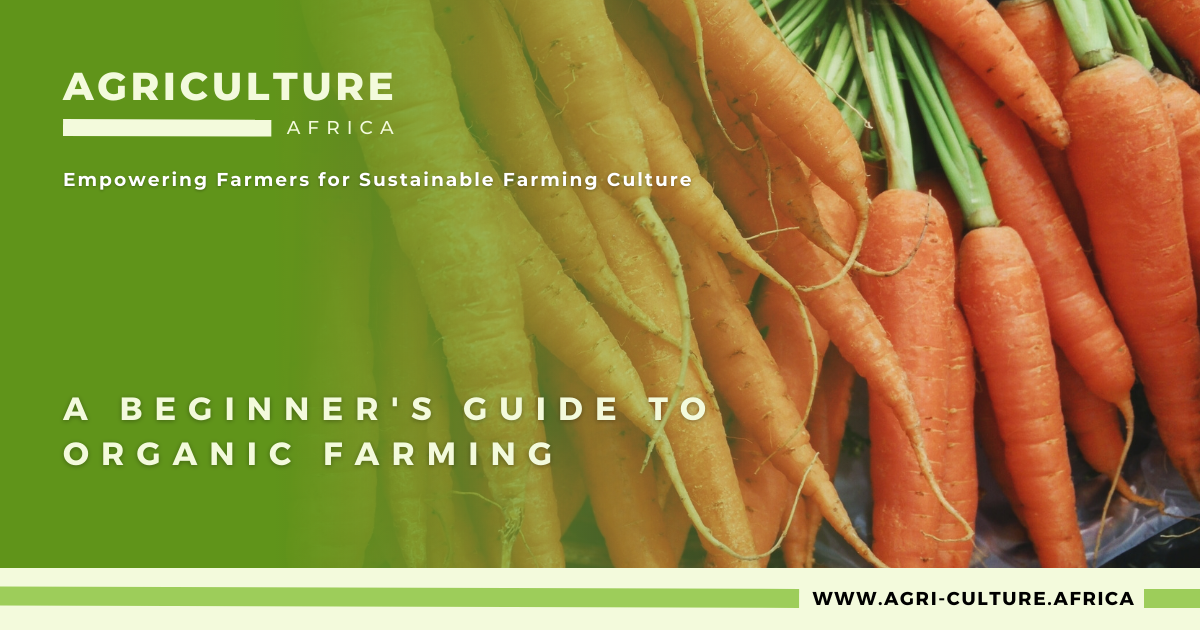
Empowering African Farmers for Sustainable Farming Culture
Organic farming is a method of farming that relies on natural processes and systems, instead of synthetic fertilisers and pesticides, to grow crops and raise livestock. The goal of organic farming is to produce food that is healthy, nutritious, and environmentally-friendly. It’s a sustainable and environmentally-friendly way of farming that is gaining popularity as people become more concerned about the impact of conventional farming methods on the environment and human health.
Here are some basic principles that beginners should know:
Here are some key guides to help you understand better:
Here are some key techniques used:
To be certified as organic, farmers must follow strict guidelines and be inspected by a third-party organization. This ensures that the food produced is truly organic and meets the certification body’s standards. Here are some key aspects of organic farming certification:
Organic farming has many benefits for both the environment and human health. Here are some key benefits of organic farming:
Table 1: Benefits of Organic Farming
| Benefit | Description |
|---|---|
| Reduces Pollution | Organic farming reduces the use of synthetic fertilizers and pesticides, which can harm the environment. |
| Improves Soil | Organic farming practices such as crop rotation, composting, and cover cropping help to improve soil health and fertility. |
| Protects Biodiversity | Organic farming protects biodiversity by promoting the use of natural pest control methods and conserving natural habitats. |
If you’re interested in organic farming, there are many resources available to help you learn more. Consider joining a local organic farming organisation or attending workshops and conferences on the topic. You can also find many books and online resources that provide detailed information on organic farming practises and techniques.
Your donation fuels change! Help Agriculture Culture in Africa empower farmers with resources, training, and access to innovation. Together, we can revolutionize African agriculture.

Empowering Sustainable Growth and Innovation in African Agriculture
Sign up to our newsletter